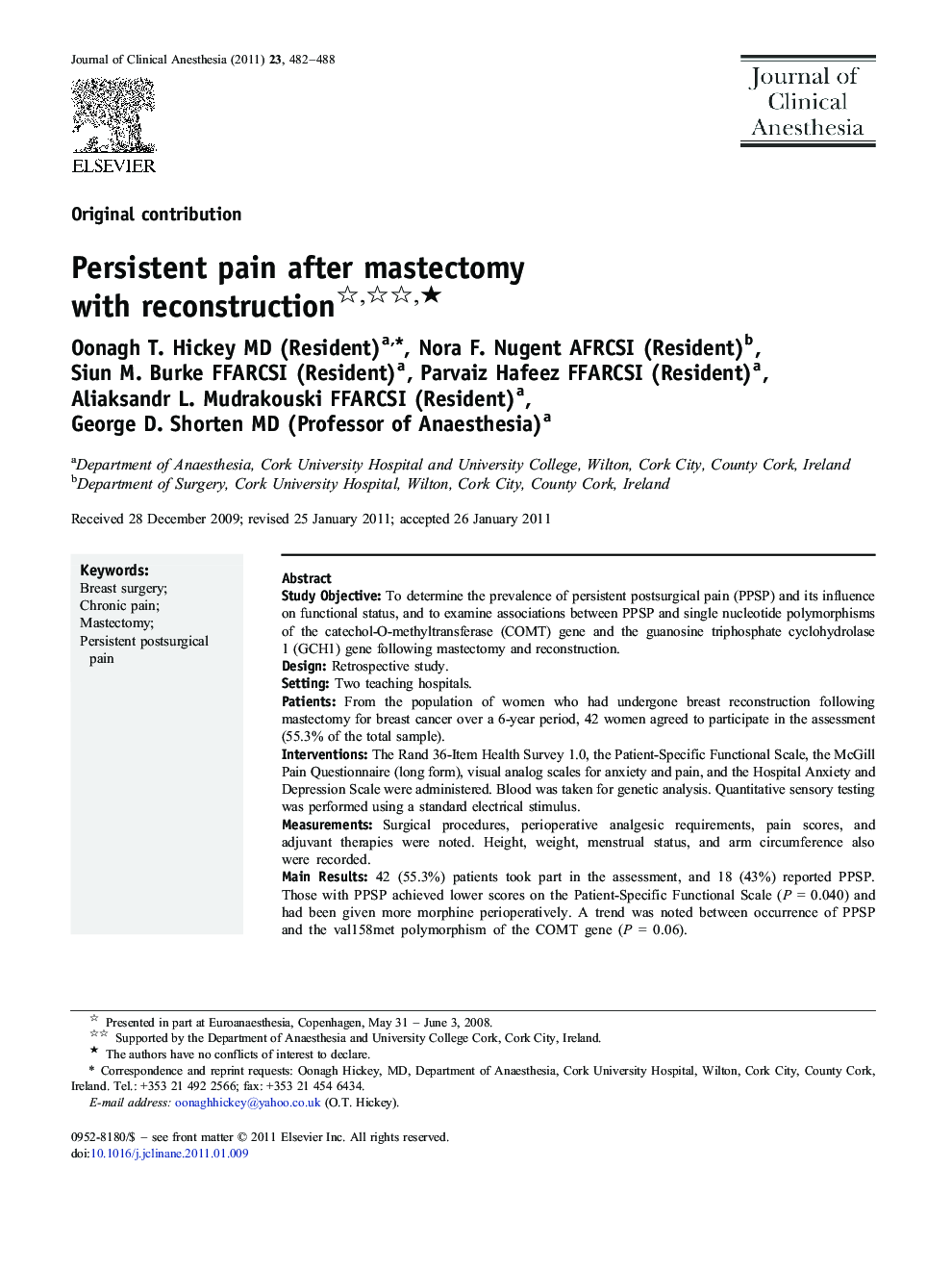| Article ID | Journal | Published Year | Pages | File Type |
|---|---|---|---|---|
| 2762575 | Journal of Clinical Anesthesia | 2011 | 7 Pages |
Study ObjectiveTo determine the prevalence of persistent postsurgical pain (PPSP) and its influence on functional status, and to examine associations between PPSP and single nucleotide polymorphisms of the catechol-O-methyltransferase (COMT) gene and the guanosine triphosphate cyclohydrolase 1 (GCH1) gene following mastectomy and reconstruction.DesignRetrospective study.SettingTwo teaching hospitals.PatientsFrom the population of women who had undergone breast reconstruction following mastectomy for breast cancer over a 6-year period, 42 women agreed to participate in the assessment (55.3% of the total sample).InterventionsThe Rand 36-Item Health Survey 1.0, the Patient-Specific Functional Scale, the McGill Pain Questionnaire (long form), visual analog scales for anxiety and pain, and the Hospital Anxiety and Depression Scale were administered. Blood was taken for genetic analysis. Quantitative sensory testing was performed using a standard electrical stimulus.MeasurementsSurgical procedures, perioperative analgesic requirements, pain scores, and adjuvant therapies were noted. Height, weight, menstrual status, and arm circumference also were recorded.Main Results42 (55.3%) patients took part in the assessment, and 18 (43%) reported PPSP. Those with PPSP achieved lower scores on the Patient-Specific Functional Scale (P = 0.040) and had been given more morphine perioperatively. A trend was noted between occurrence of PPSP and the val158met polymorphism of the COMT gene (P = 0.06).ConclusionsPersistent pain after mastectomy and breast reconstruction has a high prevalence (43%). Genetic mutations may contribute to the development of persistent pain following surgery; however, larger studies are required for confirmation.
